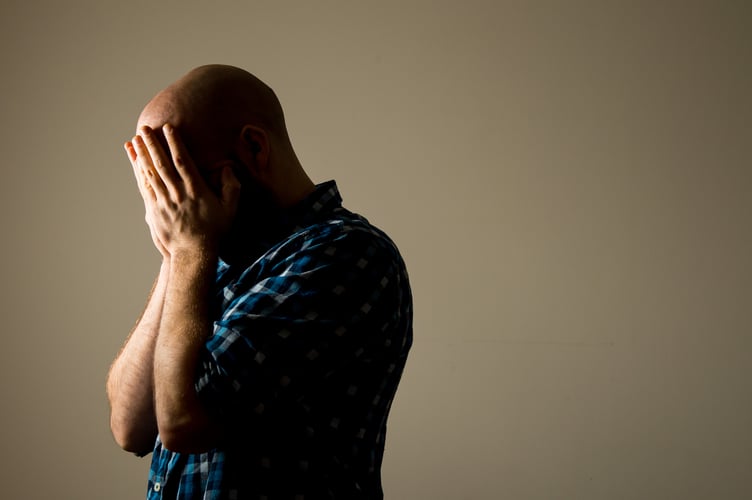Hundreds of deaths from suicide were recorded in Cornwall in the last few years, new figures show.
It comes as the number reached a record high in England, with significant differences between men and women.
Ahead of World Mental Health Day this Friday, Samaritans warned "suicide rates remain unacceptably high", especially among men, and called on the Government to place suicide prevention at the centre of its upcoming Men’s Health Strategy.
New figures from the Office for National Statistics show 232 deaths from suicide were reported in Cornwall over the 2022-24 period – down -5% from 244 in 2021-23.
It means there were around 15 suicide deaths per 100,000 people in the area these last few years, which was above the 11 per 100,000 average across England.
All deaths by suicide in England are certified by a coroner and cannot be registered until an inquest is complete. This means there can be a delay between the date the suicide occurred and the date it is registered.
Across England, 16,657 suicide deaths were recorded for the 2022-24 period. It was up 3% from 16,159 in 2021-23 and the highest figure since records began in 2001-03.
The national suicide rate varied significantly between women and men, at six deaths from suicide per 100,000 women compared to 17 per 100,000 men.
In Cornwall, the rate stood at around eight deaths per 100,000 women and about 23 per 100,000 men.
Earlier this year the Government said it intended to publish the country’s first men’s health blueprint by the end of 2025.
The upcoming Men’s Health Strategy seeks to improve men's health in England, with "a renewed focus on preventing adverse health outcomes and reducing health inequalities".
Separate ONS figures show 5,717 deaths from suicide were reported in 2024 alone, with 74% (4,231) of them being men.
Debbie Laycock, head of policy, public affairs and campaigns at Samaritans, warned the figures show "suicide rates remain unacceptably high".
She said: "Behind these deeply concerning numbers are real people and many more devastated families, friends and communities that the statistics don’t show.
"Three in four suicides registered in 2024 were men, with middle-aged men continuing to have the highest suicide rate of any group.
"Suicide is preventable, and targeted interventions to support men in their middle-age could help stop them from reaching crisis point.
"The Government has a vital opportunity to act urgently to save lives with their upcoming Men’s Health Strategy. Preventing male suicide must be at the heart of it.
"No-one can assume that they won’t be affected by suicide, so it’s vital everyone knows that support is available."
Stuart Falconer, co-founder of The OLLIE Foundation which campaigns for suicide prevention and wellbeing, said: "The responsibility falls on all of us to step up and ensure no-one feels that suicide is the only option open to them.
"Having the tools to help people is an essential skill to have in this modern age, where mental health challenges are becoming more and more frequent.
"Collectively, we can do something about this to drive the figures down."
A Department of Health and Social Care spokesperson said: "Every suicide is a tragedy that has a devastating and enduring impact on families, friends and communities.
"We are delivering the Suicide Prevention Strategy for England as well as improving support for those who have self-harmed or are bereaved by suicide.
"Through our 10 Year Health Plan, this Government is committed to ensuring fewer lives are lost to suicide and taking decisive action to boost mental health support across the country.
"We are transforming services with an extra £688 million, hiring 8,500 additional mental health workers, delivering more talking therapies and providing better access to support through the NHS App."
When life is difficult, Samaritans are here – day or night, 365 days a year. You can call them for free on 116 123, email them at [email protected], or visit www.samaritans.org To find your nearest branch.




